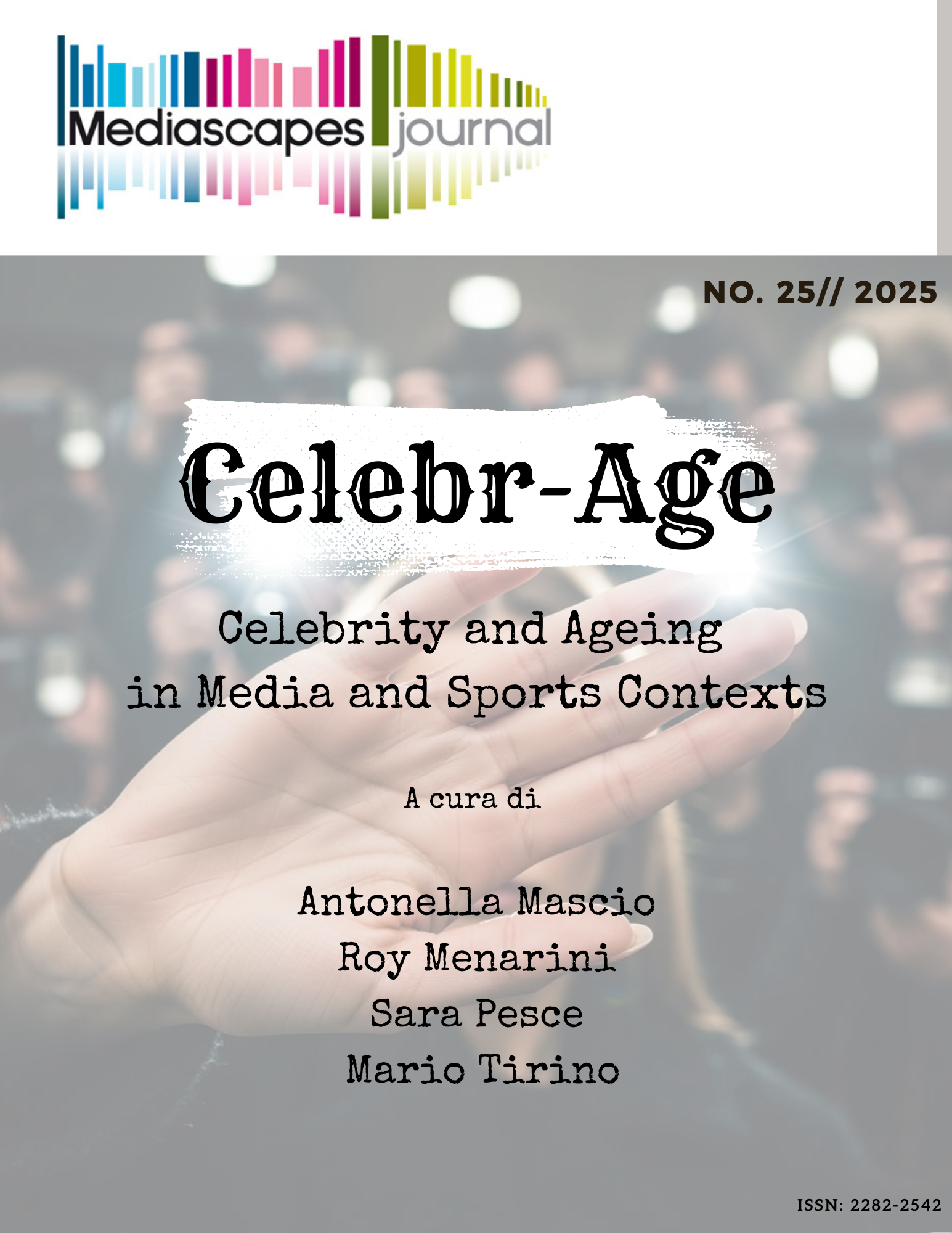Affect and its role in the formation of Italian political fandoms on social media
Parole chiave:
political fandom, visual analysis, social media affect, affective engagement, celebrity politicsAbstract
This article explores the phenomenon of political fandom in Italy through an analysis of Instagram posts related to Giorgia Meloni, Prime Minister and leader of Fratelli d’Italia. Positioned within the discourse on the celebritization of politics, the study examines the integration of fan-like behaviours into political engagement, particularly within the algorithmically governed and fragmented spaces of contemporary social media. Drawing on Jonathan Dean’s (2017) framework, the authors assess how these elements are articulated in digital interactions. Using a mixed-methods approach, the research combines quantitative analysis of 383 Instagram posts under the hashtag #GiorgiaMeloni with qualitative visual and multimodal analysis. The findings show that the majority of fan-like content supporting Meloni is strategically created by political actors to build a sense of community and align followers with the leader’s political agenda. Conversely, anti-fandom content by ordinary users predominantly critiques Meloni in a personal or political capacity, often lacking the communal aspects typical of fandom. The study introduces the concept of fandomesque, a genre of fan-like content generated primarily by political actors rather than ordinary users. Unlike spontaneous fandom, fandomesque practices blend affective expressions with strategic political objectives, challenging traditional assumptions about the nature of fan-like behaviours. The analysis reveals that while anti-fandom content dominates among ordinary users, reflecting personal and political disapproval of Meloni, fandomesque content is largely produced by political actors seeking to shape a supportive digital discourse around the leader. The authors argue that Dean’s framework requires adaptation to capture the nuances of digital political fandoms in the social media age. Specifically, the interplay of parasocial relationships and strategic motives necessitates an expanded theoretical lens that incorporates insights from celebrity politics, social media studies, and affect theory. This integrative approach enables a deeper understanding of digital political fandoms as dynamic phenomena shaped by individual affective attachments and collective strategic efforts within fragmented online spaces. This research contributes to the broader literature on political communication by highlighting the interplay between celebrity-like performances by politicians and the fan-like behaviours of their supporters. It also underscores the importance of distinguishing between spontaneous fandom and fandomesque practices to better understand how political actors leverage fan culture to achieve strategic goals. The findings provide a foundation for future empirical and theoretical studies on the role of affective publics and parasocial dynamics in political engagement on social media.
##submission.downloads##
Pubblicato
Come citare
Fascicolo
Sezione
Licenza

TQuesto lavoro è fornito con la licenza Creative Commons Attribuzione 4.0 Internazionale.
Gli autori che pubblicano su questa rivista accettano le seguenti condizioni:
- Gli autori mantengono i diritti sulla loro opera e cedono alla rivista il diritto di prima pubblicazione dell'opera, contemporaneamente licenziata sotto una Licenza Creative Commons - Attribuzione che permette ad altri di condividere l'opera indicando la paternità intellettuale e la prima pubblicazione su questa rivista.
- Gli autori possono aderire ad altri accordi di licenza non esclusiva per la distribuzione della versione dell'opera pubblicata (es. depositarla in un archivio istituzionale o pubblicarla in una monografia), a patto di indicare che la prima pubblicazione è avvenuta su questa rivista.
- Gli autori possono diffondere la loro opera online (es. in repository istituzionali o nel loro sito web) prima e durante il processo di submission, poiché può portare a scambi produttivi e aumentare le citazioni dell'opera pubblicata (Vedi The Effect of Open Access).


